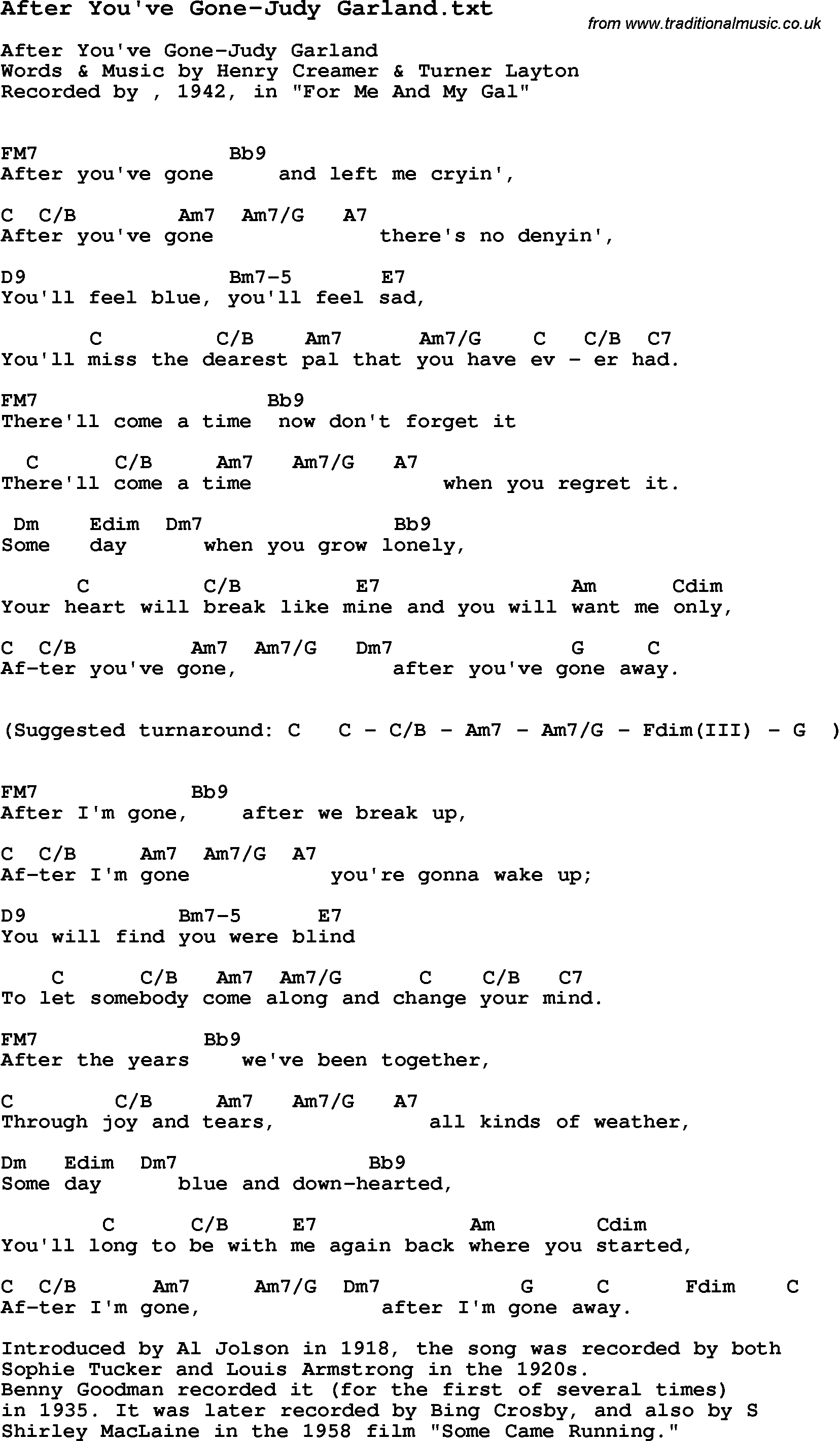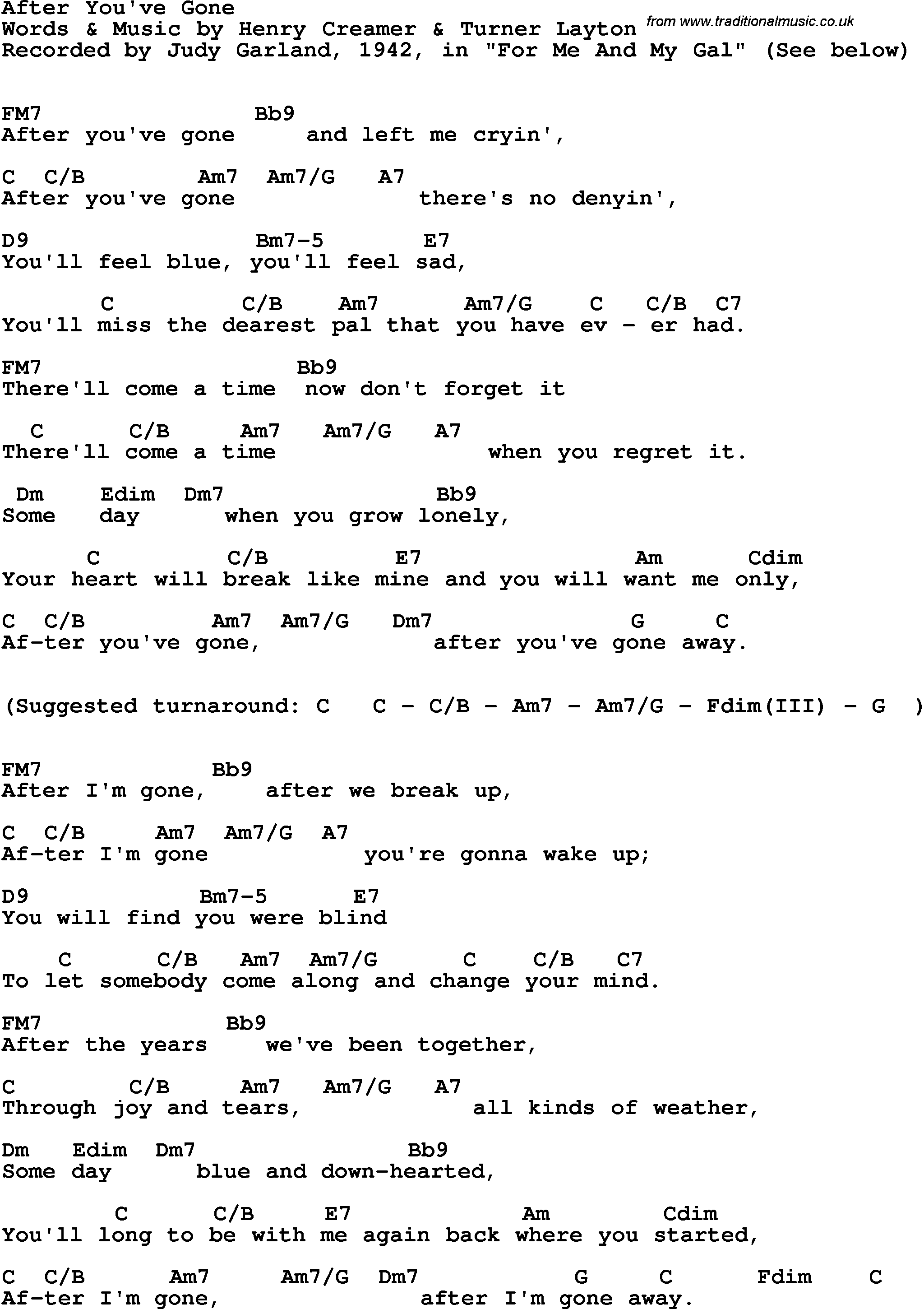After You've Gone (song)
After You've Gone is a pop ballad that Turner Layton wrote to a text by Henry Creamer and published in 1918. The song was a 1919 number -one hit and developed in the late 1920s jazz standard. He is also the ( by Jamie Cullum interpreted ) theme song of the same name BBC TV series.
Characteristics of the song
After You've Gone is the love lament of an abandoned wife of her ex-lover; she gives him to understand that he would regret this step in the future yet. The predominantly written in a major key song is held in the form of a song ABAC, each of the parts ( with the exception of the 8 -bar C- section) consists of four strokes. The A- part set with its haunting repetition of words or After You've Gone ' There'll Come a Time, the present or the future in the room. The last four bars of the C- part access this image again.
Starting the recording mode
Al Jolson sang the first to After You've Gone; The premiere took place at New York's Winter Garden Theatre. The song was soon taken up and it was 1918 and 1919 in the American charts:
- Henry Burr and Albert Campbell (1918, # 2 )
- Marion Harris (1919, with Rosario Bourdon Orchestra, # 1)
- Billy Murray and Rachel Grant (1919, # 9)
The way to Jazz Standard
In 1927, the song was re- recorded, on the one hand by Bessie Smith, accompanied by pianist Fletcher Henderson ( # 7), on the other hand by Sophie Tucker and Miff Moles Moler (# 10). In the next few years they covered even Louis Armstrong (1929 ) Paul Whiteman ( with singer Bing Crosby (1930, # 14), Jack Teagarden and Lionel Hampton (1937, # 6 ) the song.
In 1927 made his first instrumental versions (about Johnny Dodds ); an up-tempo version of Red Nichols and Tommy Dorsey was recorded in the same year for the first time. In 1935, Benny Goodman and his trio first commercially successful instrumental version (# 20); 1936, Stuff Smith. 1937 also played Django Reinhardt and Stéphane Grappelli Quintette du Hot one with their Club de France After You've Gone instrumental. In the same year Roy Eldridge chose the title for the first time as a " starting point for an equally virtuosic as humorous Swing fireworks " (with singer Gladys Palmer ); In 1941, another brilliant cover version of Eldridge with the orchestra of genes Krupa.1944 put the Blue Note Jazzmen to James P. Johnson also a recording before that is considered a classic. In the second half of the 1940s, especially saxophonist interpreted the song about Charlie Parker, Lester Young (at a Jazz at the Philharmonic concert in 1946, listening to Bird and Pres - The '46 Concerts Jazz at the Philharmonic ), but also Don Byas and Sonny Stitt.
Till Bronner played the piece again in 2010 and for his collection At the end of the day.
Function as a bebop head
Type Peppers theme song Straight Life builds on the harmonies of After You've Gone. Sonny Rollins played in 1957 in his trio with Ray Brown and Shelly Manne on the harmonies of the standards as Come, Gone, in which he completely aussparte the subject.










